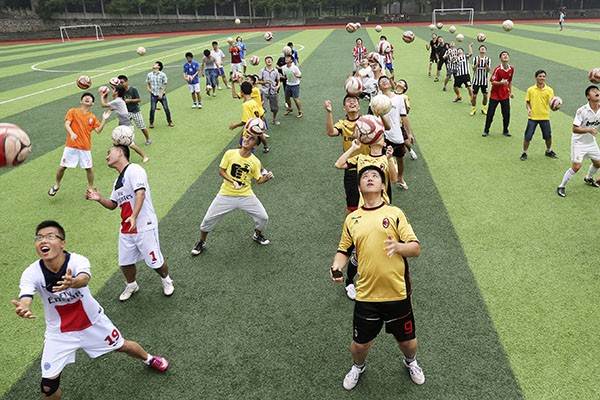Chinese cabinet State Council issued on Monday the national plan focusing on strengthening the country’s strategy to attain its World Cup Dream: to host the anticipated games and take home the championship tilt.
The reform plan aims to make soccer a widely popular game in China. One of its most important features is the streamlining of the sport's management system often criticized as counterproductive.
According to the issued national plan, the Chinese Football Association (CFA) will now be a full-fledged non-governmental organization instead of being a semi-administrative body attached to the General Administration of Sport of China.
A reshuffled league council will take charge of the football association's decision-making powers. The league will be composed of a CFA representative and shareholders coming from various local clubs.
Professional leagues are also urged to set higher management standards. This is apart from being more open to market-economy practices.
Moreover, the Chinese government also calls for all organizations, from school to corporations, to have their own soccer teams and hold their own amateur games. These are set to be supported by government-financed unions, women's associations as well as youth organizations.
China's soccer team has not been performing well in the international sports arena.
CFA's secretary-general, Zhang Jian, stated that at the start of 2014, around 190,000 student players are registered at local sports authorities. This figure is less than one-third of the 1995 statistic.
Zhang furthermore emphasized that the number of active soccer schools in the country has dropped to 20 from a 1990s statistic of 1,000.
Apart from poor performances, soccer in China is known for other issues such as bribery and match-fixing, bureaucratic ineptitude, gambling scams and corruption.



























